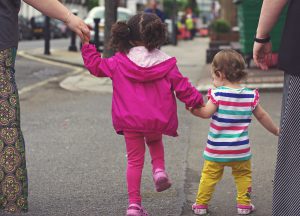Interacting with others may create particular challenges for young children with an Autism Spectrum Disorder (ASD). Initially they may not show interest in others and if play skills are present it may be to play alongside others rather than with others. For success in the school years, development of basic interaction skills, play skills and coping mechanisms are necessary. If your young child with ASD has an associated learning disability such as Intellectual Disability(ID) or Attention Deficit Hyper Activity Disorder(ADHD) their ability to interact with others may require extra supports.

During your child’s early years, help to get them ready for kindergarten and the school years, by practicing the following developmental skills.
Playing simple games
Skills to encourage: Smiling, reaching for the person or toward object in a game eg. rolling a ball between yourself and your child
Interest and interaction with other children
Skills to encourage: Create play opportunities with same age children and act out what is required with them, make short statements ‘wave to Sam’ ‘Sam is smiling’
Commencing play with other children
Skills to encourage: Say ‘Do you want to play?’ or act out taking a toy toward another child to show how to initiate play
Beginning to play without adult support
Skills to encourage: While your child is playing with another child move yourself physically away but still in view, your child will see that they can be successful in play without your immediate support
Commencing responses to other adults
Skills to encourage: Bring other adults, family members, friends into the role you have undertaken to help your child understand that they are able to interact successfully with others
Beginning to understand and use social expectations
Skills to encourage: Model ‘please and thank you’ ‘hello and goodbye’ when interacting with children and adults
Beginning to transfer skills to other environments
Skills to encourage: It is a good idea to use the safe environment of your home to practice the development of all of these skills. It is important however, that your child can use the skills learnt in other environments. Your child with ASD may not understand that these skills can be used in other areas so venture out to parks, play groups, friends homes, shopping centres and libraries to practice.
The development of basic interaction skills is essential for a successful quality of life. Your child will now be developing a particular learning style that needs to be considered when teaching all of these skills. For your young child with ASD use naturally occurring events to develop these skills. Accessing early intervention, kindergarten, child care services will also allow for these skills to be further developed.